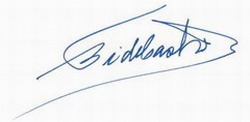Oil Costs and Development
- Submitted by: admin
- South America
- Business and Economy
- Politics and Government
- 11 / 21 / 2007

Reflections of President Fidel Castro:
CHÁVEZ said it very clearly in Riyadh: developing countries spend upwards of one trillion dollars in oil and gas. He proposed that the OPEC, which was nearly dissolved before the establishment of the Bolivarian government " and that chaired and preserved this organization for over 8 years" assume the tasks the International Monetary Fund was created for but has never fulfilled.
The dollar is in a state of free fall, he said. We are paid with paper notes. We can and ought to guarantee a supply of fuel, both to developed countries and to those struggling to develop and which need to import it. The OPEC can grant development credits with long grace periods and a yearly interest of only 1 percent that poor countries can pay with the goods and services they can produce. He mentioned the sum of 5 billion dollars in development aid which Venezuela loans Caribbean countries which desperately need to import this essential commodity.
Chávez could invoke an illustrative example which Cuba is well aware of: with what it costs to import a single barrel of oil at the end of 2007, 13.52 tons of light oil could have been purchased in 1960, including its transportation, that is to say, nearly 50 times the amount today. In these circumstances, a country like the Bolivarian Republic of Venezuela would continue to supply the United States with oil for practically nothing. Its land would continue to sink in some oilfields drained of the oil that supports them.
I can imagine what headaches these calculations bring him and see how just and noble his hopes are for equality and justice for the peoples of what Martí called our America and what Bolívar, in his struggle against the Spanish empire, described as a single nation.
CHÁVEZ said it very clearly in Riyadh: developing countries spend upwards of one trillion dollars in oil and gas. He proposed that the OPEC, which was nearly dissolved before the establishment of the Bolivarian government " and that chaired and preserved this organization for over 8 years" assume the tasks the International Monetary Fund was created for but has never fulfilled.
The dollar is in a state of free fall, he said. We are paid with paper notes. We can and ought to guarantee a supply of fuel, both to developed countries and to those struggling to develop and which need to import it. The OPEC can grant development credits with long grace periods and a yearly interest of only 1 percent that poor countries can pay with the goods and services they can produce. He mentioned the sum of 5 billion dollars in development aid which Venezuela loans Caribbean countries which desperately need to import this essential commodity.
Chávez could invoke an illustrative example which Cuba is well aware of: with what it costs to import a single barrel of oil at the end of 2007, 13.52 tons of light oil could have been purchased in 1960, including its transportation, that is to say, nearly 50 times the amount today. In these circumstances, a country like the Bolivarian Republic of Venezuela would continue to supply the United States with oil for practically nothing. Its land would continue to sink in some oilfields drained of the oil that supports them.
I can imagine what headaches these calculations bring him and see how just and noble his hopes are for equality and justice for the peoples of what Martí called our America and what Bolívar, in his struggle against the Spanish empire, described as a single nation.
At the time, a balance was still maintained. Neither the empires diabolical idea of transforming food into fuel, nor the climate changes science has discovered and proven existed.
Fidel Casto Ruz, November 19, 2007, 4:36 p.m.
(Granma)
Comments